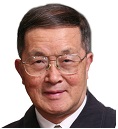The unconventional summit between Chinese President Xi Jinping and his US counterpart, President Barack Obama, at the Sunnylands estate in California, sent a positive message about the bilateral relationship. Now the world is concerned about whether a new type of major power relationship will be fostered between China and the United States, as promised by the two leaders.
The leaders did not hit upon the idea on a whim but rather had developed it out an insightful understanding of the times.
Since the world entered the second decade of the 21st century, countries have become increasingly dependent on each other amid economic globalization. China and the US’s have national interests and international responsibilities that necessitate the establishment of a new type of relationship. Reassuringly, leaders of both countries had the foresight to realize the necessity.
There is a solid ground for establishing a new type of relationship between the two countries. In his meeting with President Obama, President Xi explained the concept from five aspects; namely political will, accumulation of experience, institutional guarantee, public opinion, and the space for cooperation.
China has accumulated considerable experience in developing relations with other major powers over the past 30-odd years. In terms of a theoretical understanding, Chinese leaders approach the issue of big countries’ relationship from the perspectives of global political landscapes, the security environment, and international order. In practice, China follows a number of principles in handling its relations with other major powers; namely the principle of maintaining national interests, the principle of excluding ideology from determining friend and foe, the principle of seeking common development, and that of facing the future. In actual interaction with other big countries, China is neither haughty nor humble. It respects facts and never goes back on its word. When handling a situation, China does not eye its immediate interests only; instead, it takes into account the significance of the whole situation. Over the years China has developed a comprehensive idea on how big countries should handle their relations.
Fostering a new type of major power relationship between China and the US will need to proceed through several stages. The first stage is understanding. After about a year’s worth of discussions over the matter, both the Chinese and American heads of state have reached a consensus. This consensus will then be spread wider to become common understanding in both countries. Then the understanding should be put into practice in the second stage. This is a course of exploration, accumulation of experience, and gradual perfection.
Gaining a common understanding is the most important part of the course. Both presidents have made decisions on actual moves to be taken. They have agreed that both sides should act in close coordination to ensure that positive results are achieved in the next round of the Sino-US Strategic and Economic Dialogue and high-level cultural exchanges. Both sides have agreed to strengthen cooperation in fields such as economy, energy, environment and culture; as well as on local government levels. Military authorities from both sides will improve their communication to develop a new type of relationship. Both countries will strengthen their coordination in macro-economic policies and extend their economic cooperation to wider areas, so as to stimulate Asia-Pacific and global economies to grow strongly, yet in a sustainable and balanced manner. Both sides also agreed to cooperate on Internet security.
To gauge the type of relationship between China and the US, one can draw references from the criteria that the 18th national congress of the Communist Party of China raised about major power relations, namely “mutual trust on the basis of equality; mutual learning on the condition of inclusiveness; and cooperation for a win-win solution.” Here the key words are equality, mutual trust and inclusiveness.
Equality means that both countries are equal in sovereignty, on equal footing in partnership and enjoy equal say in dialogue. The equality is commensurate with each side’s strength but both sides should respect one other’s advantages. In the sense of equality, it is irreproachable for any side to keep its policies “balanced” or “rebalanced.”
Mutual trust requires self-confidence in the first place. In other words, one should be certain of one’s own need for cooperation from the other side and be confident of success in cooperation. Without such confidence, there will be no mutual trust.
Mutual inclusiveness is of vital importance to both sides entering into sincere cooperation to secure win-win solutions. Both sides should acknowledge and respect each other’s values, social system and road chosen for development. They should seek common ground and set aside differences with the understanding of “not imposing on others what you yourself would not desire.” No arrogance and prejudice should be allowed in bilateral relations. Both countries should regard each other’s strategic intentions in an objective and rational way and respect each other’s interests and concerns. They should also strengthen coordination and cooperation in major international and regional issues.
In all, with a new type of bilateral relationship, China and the US should achieve mutual trust in politics, mutual complementation in economy, exchange in culture, interaction in military affairs and mutual consultation in diplomacy.
Last but not least, both countries should try to prevent interference from any third party. The bilateral relationship should not be targeted at any third country, and neither side should collaborate with the third party to oppose the other side in a trilateral relationship. Only by observing these principles can both countries establish a non-confrontational and mutually beneficial and dependent relationship.
The new type of bilateral relationship can’t be established overnight. China and the US should acknowledge the difficulties as well as the differences and try to remove any obstacle in their way towards a better relationship.
Yu Sui is a professor with the China Center for Contemporary World Studies.


